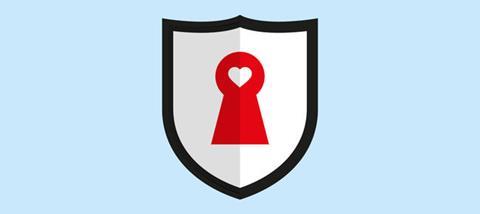
Following public concerns about safety, DBS checks (formerly known as CRB checks) were introduced by the government in 2002 to check the criminal backgrounds of all people who work with children or at-risk adults in schools, voluntary organisations or professional bodies.
A disclosure check reveals information held on central police databases, such as cautions and convictions, and a person’s inclusion on government lists that bar them from working with vulnerable groups. A check at an enhanced level also includes non-conviction data that will be disclosed if it is relevant to the role for which the person has applied.
The Charity Commission requires that everyone working with vulnerable beneficiaries who are entitled to have a disclosure do so. An organisation’s failure to address this issue could be regarded as a ‘serious incident’ and can potentially lead to legal action.

How does a DBS check work?
A church or organisation needs to be registered with a DBS processing body, such as the Churches’ Child Protection Advisory Service (CCPAS). Those applying for checks need to provide all their addresses for the last five years, and the dates they lived there. They also need a National Insurance number, a debit or credit card, and proof of identity, for example a passport or valid driving licence.
Once the application has been submitted and received, the DBS checks it for any mistakes. Within 24 hours of receipt, it is added to the DBS computer system or returned if corrections are needed.
The DBS then searches the Police National Computer, a nationwide database that checks a person’s criminal record for any cautions, warnings, reprimands or convictions. If an enhanced check is needed, the database will be checked for those who are barred from working with these groups. Local police records are also checked.
The length of time it takes to complete this step depends on previous address history. The more previous addresses held by the applicant, the longer it can take. When these steps are completed, the applicant’s DBS certificate is issued and posted to their home address.
Is a ‘clean’ DBS check a green light for someone to work with children?
Some people mistakenly think carrying out a DBS check is all that is needed when recruiting a worker. However, the recent case of a West London carer who was jailed for 21 years last November for the attempted murder of a 90-year-old patient, despite passing a DBS check, highlights that this is not the case. Although these checks are vital, they only go so far when it comes to protecting those in our care.
The realities of working with children and young people, especially within churches and Christian organisations, can pose challenges around recruiting enough volunteers. It can sometimes be tempting to cut corners or bend policies to meet immediate needs. Those who have responsibility in this area need to remember the important role these checks play as part of a safer recruitment process.
What if the check comes back with previous convictions?
As the largest provider of DBS checks to the faith sector, CCPAS knows the variety of results that can come back as part of a check, but a blemished disclosure doesn’t automatically mean a worker will be rejected from a role. A conviction for minor theft several years ago, for example, does not necessarily mean the applicant is unsuitable for working with children or young people now. This is where the risk assessment process comes in, and where CCPAS can help you reach a decision.
What do I need to consider when processing checks?
It’s really important to plan in advance when applying for DBS checks as it can take some time. Ensure that you know what events you have planned throughout the year and how many people will need to be involved, and factor this into your administration.
Remember that the check is based on the role, and the role determines whether or not the person is eligible for a check. Some organisations that are not familiar with DBS legislation may submit a check for anyone and everyone working or volunteering for them, hoping a catch-all approach will ensure no one slips through the net. We’ve seen checks submitted for volunteers who serve refreshments through to those arranging flowers and everything in between.
Although this may seem sensible, many DBS providers don’t alert you to the potentially serious consequences of this, as sensitive and personal information that an organisation may not legally be entitled to hold is disclosed.
DBS checks help to keep children and vulnerable people safe by providing important information, which can help churches and organisations make the right decisions about their workers. But this only forms part of a safer recruitment process, marking the start of a clear commitment from the whole organisation to create safer places for all.
Call CCPAS on 0303 003 1111 for independent, professional and compassionate support around safeguarding in your organisation: ccpas.co.uk.
NEXT MONTH: Developing a safer recruitment process.
Click here to request a free copy of Premier Youth and Children's work magazine






































